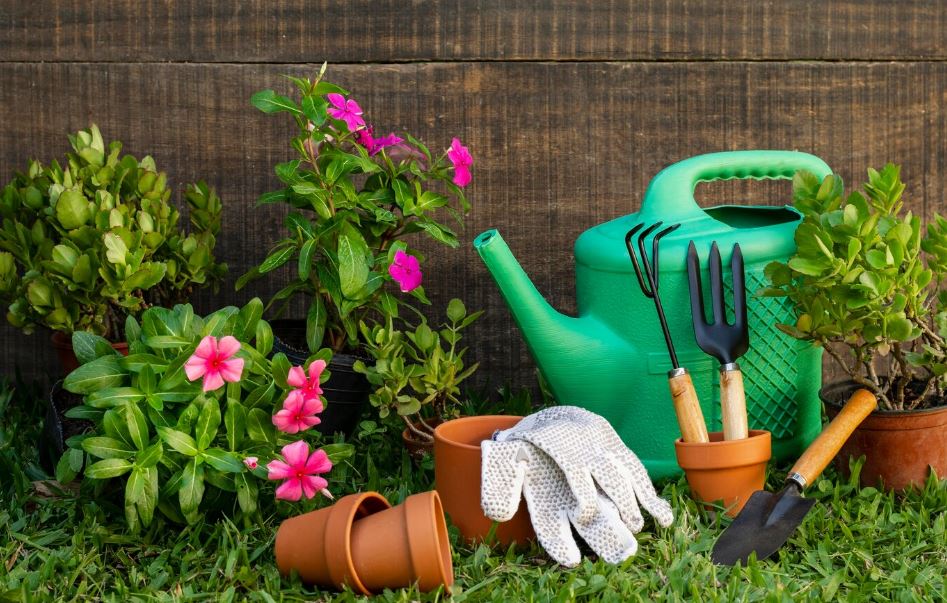
Asda Gardening Tools have become a surprisingly potent representation of creative practicality. Asda has revolutionized accessible gardening by fusing affordable prices with elegant functionality. The brand has connected with young families, first-time homeowners, and even apartment dwellers who are determined to create beauty in a small space, rather than just experts with expansive lawns and potting sheds.
Asda has significantly decreased the amount of work required to start gardening by utilizing its grocery network. Nowadays, you can add a mini scoop or bypass pruner to your weekly grocery cart online or in-store, whereas in the past it might have required a trip to a specialty store. Despite its subtlety, this logistical innovation has a significant impact. It changes gardening from being a project to being a whim, from being seasonal to being impromptu.
Key Highlights of Asda Gardening Tools
| Feature | Details |
|---|---|
| Brand Name | Asda Gardening Tools |
| Parent Company | ASDA (Owned by Issa Brothers and TDR Capital) |
| Retail Platforms | groceries.asda.com, direct.asda.com |
| Price Range | £1.00 – £16.00 |
| Notable Product Lines | George Home Tool Sets, Poly Hand Forks, Bypass Pruners, Garden Gloves |
| Customer Demographic | Urban gardeners, young families, eco-conscious shoppers |
| Seasonal Peak | March to September |
| Known For | Affordable pricing, accessibility, seasonal trendiness |
| Social Buzz | Popular on TikTok, Instagram; tags like #AsdaGarden and #GeorgeHomeTools |
Asda has transformed its George Home gardening accessories into tiny lifestyle statements through astute collaborations and Instagram-friendly product lines. The £16 three-piece Lucky Charm Tool Set is more than just a kit; it’s a thoughtfully chosen present that will be the focal point of innumerable social media posts. Influencers have embraced these tools because they can transform a planter shot into an aesthetic experience in addition to their practical use.
It has turned out that Asda’s gardening selection is surprisingly reasonably priced for medium-sized households on a limited budget. Green therapy is accessible without breaking the bank thanks to products like the £1 Poly Hand Fork and Mini Scoop. These tools have proven especially useful in the spring, when planting booms and financial strains frequently occur simultaneously.
The emotional return on investment is significant when considering urban wellbeing. Asda’s modest products fuel stories of families planting together on a Saturday afternoon, kids writing names on £1 plant labels, and elderly hobbyists caring for herbs on their balconies. Gardening becomes a very effective way to experience restorative joy and ceases to be a luxury.
Celebrities have also given Asda their support. Television personality Stacey Solomon casually mentioned purchasing a “cheeky garden trowel from Asda” while grocery shopping in a recent interview. The mention was immediately welcomed by her fans, who were mostly do-it-yourselfers and young mothers. A sense of validation was produced by the fusion of mass-market tools and the lifestyle of celebrities. Suddenly, a £3 pair of gardening gloves was not only adequate, but also deemed trendy.
Asda has gained the loyalty of customers who appreciate long-term performance by providing products that are incredibly durable despite their affordable prices. The Pro Bypass Pruner costs only £5 and is commended in online reviews for its ergonomic grip and sharpness. This type of quality-to-cost ratio is remarkably similar to more expensive brands, but it is refreshingly simple.
People were looking for grounding activities during the pandemic, and gardening saw a notable boom. Because they were dependable, accessible, and reasonably priced, Asda’s tools served as a starting point for many. Those behaviors have not diminished. Rather, they have evolved into rituals, with sanctuary kneelers and George Home misters becoming mainstays of weekend schedules.
The offering’s simplicity appeals especially to early-stage hobbyists. There is only deliberate, unambiguous design—no intimidation. With a £2 cultivator, a beginner can start without worrying about making a mistake. The equipment encourages patience, experimentation, and the fun messiness that comes with gardening.
Asda has made sure that these products are constantly visible through strategic merchandising. Yes, they sit close to seeds and soil, but they’re also close to patio lights, seasonal flowers, and barbeques. This placement supports the notion that gardening is a component of a broader way of life that is inextricably linked to self-care, home maintenance, and family time.
Asda Gardening Tools has had a subtly motivating impact on community involvement. The brand is frequently mentioned by neighborhood projects and local schools as their go-to source for starter planting kits. “Asda’s tools were the only ones we could afford for every child in the class,” remarked one Nottingham educator. This type of accessibility is especially novel in a market that is frequently controlled by high-end firms.
Asda has significantly enhanced its seasonal rollouts by incorporating feedback and concentrating on intuitive enhancements. Softer grips, kid-friendly sizes, and even themed sets like Gnome-printed gloves—which combine function and whimsy in equal measure—are characteristics of the latest generation of tools. These additions show that gardening is viewed as both a playful activity and a labor-intensive task.
Gardening will probably continue to be a significant cultural touchpoint in the years to come as consumer behavior is shaped by environmental consciousness. It feels both contemporary and delightfully nostalgic to be able to use tools acquired during weekly errands to raise pollinator plants, grow herbs, and educate kids about ecosystems. Asda has made a cultural as well as a transactional contribution to this change.
